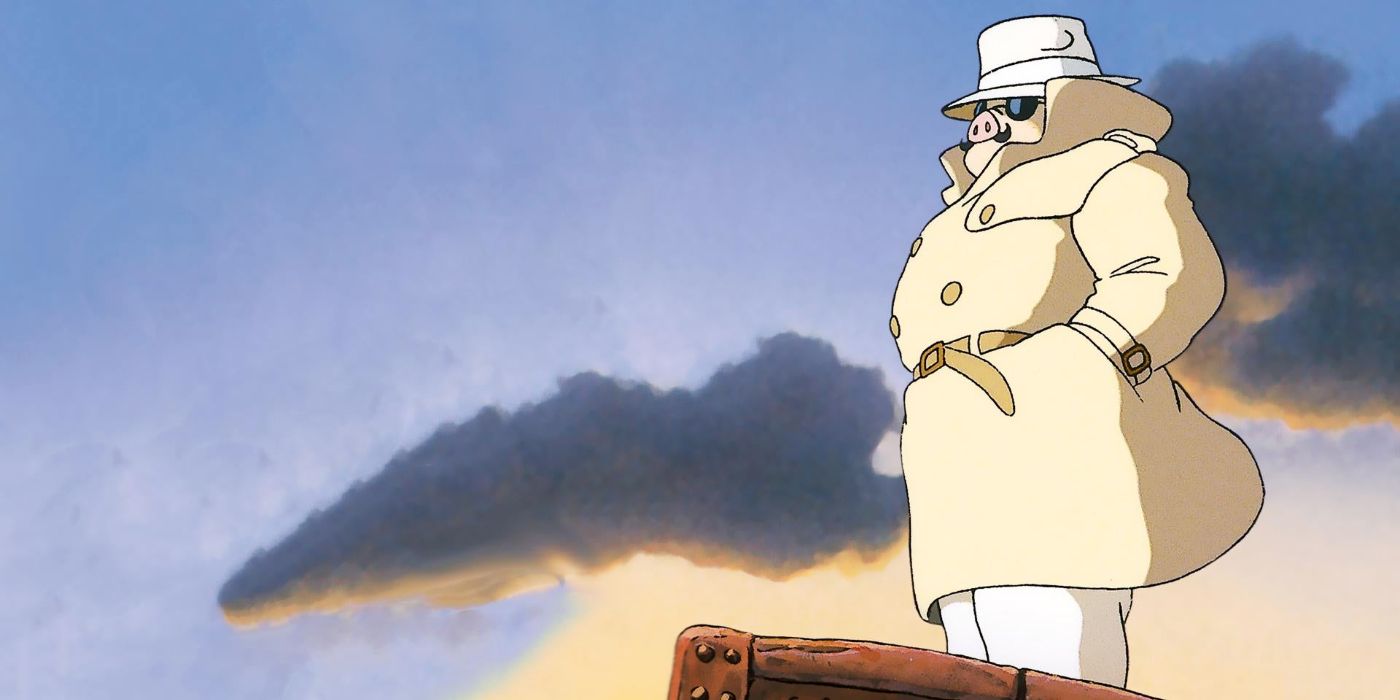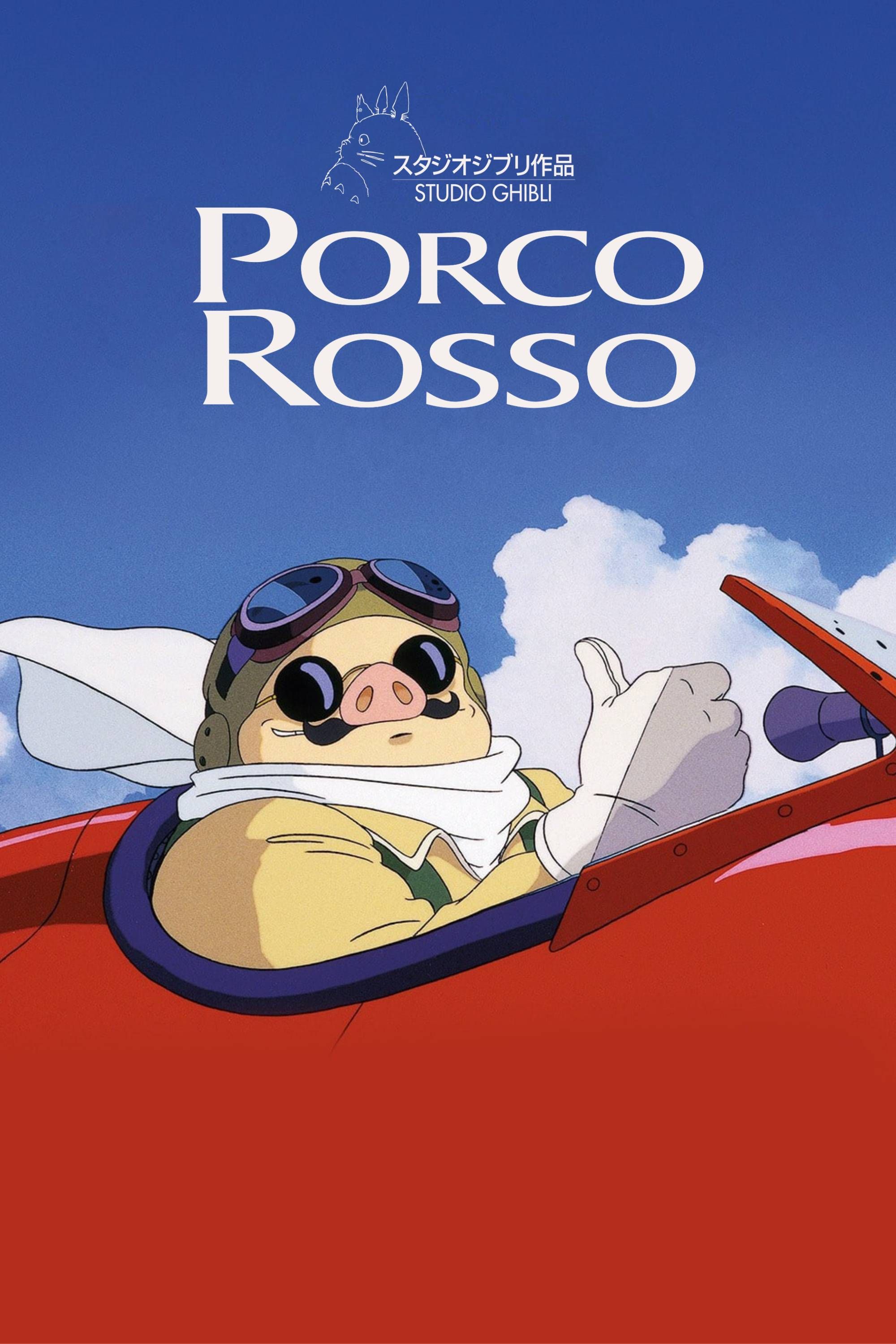
Porco Rosso is one of Studio Ghibli’s most underrated works, despite being one of their greatest creations yet. Its premise may sound whimsical, following a veteran pilot cursed to live as a pig, but the story’s execution is anything but trivial. Set over the Adriatic Sea, Porco Rosso is wistful, perhaps even cynical, yet it possesses beauty beyond compare.
The film goes beyond a simple fantasy adventure and explores heavy themes laced with anti-war symbolism. Its protagonist is a principled yet weary man who has turned his back on humanity out of disappointment. Porco Rosso is a film that deserves much more recognition for its depth and reflective qualities.
Porco Rosso Explores Difficult Themes
The Film Is Better Understood as an Adult
Porco Rosso is best known for its charming setting and animation, but its emotional narrative is far heavier. While the film can be enjoyed by audiences of all ages, it’s much more suitable for older audiences as it explores themes of survivor’s guilt, humanity, loss, and redemption. The humor and hints of romance in the story mask the underlying sorrow and scars of war.
Related
1 Studio Ghibli Movie Embodies the Brand Better Than Any Other and No, It’s Not From Hayao Miyazaki
One of Studio Ghibli’s best films often flies under the radar, but Only Yesterday captures something truly unique, making it a must-watch experience.
Set in the late 1920s during the interwar period, when Europe was moving toward fascism acts as a powerful metaphor for the story. Porco’s retreat to a secluded cove is more than just a scenic escape from the world, and is instead an emotional withdrawal. He avoids human contact because something inside him had been fractured after World War I.
“It’s worth asking what flight has truly given us. One could argue that we should have stayed on the ground. Everything shines at the beginning of time. But once these things become part of capitalism, nation-states, and other earthly interests, they start to lose their glow.”
-Hayao Miyazaki
When looking at the film alongside Miyazaki’s perspective, it’s clear that it’s not just about aviation but also about disillusionment with human progress. What once represented freedom has become tangled in violence, politics, and profit. Miyazaki’s vision of flight, something that ideally should be liberating, is instead burdened.
The film never explicitly explains Porco’s transformation; however, his form is self-inflicted and serves as a visual metaphor for his guilt, disillusionment, and refusal to forgive either the world or himself. Porco isn’t seeking redemption as much as he wants to distance himself from his past and society. Beneath the film’s humor, the story is one of resignation and regret.
Porco Is Widely Considered a Self-Portrait of Miyazaki
Hayao Miyazaki May Have Envisioned Himself in Porco Rosso
After Miyazaki made Only Yesterday, a film he considered a message to future generations, he set out to explore something far more personal. Porco Rosso was the film he worked on immediately afterward, describing it as “a letter in the present tense to my middle-aged self, who is lost.”
Miyazaki often caricatures himself as a pig, and Porco is no exception, even depicted with flaws that mirror his own. Disillusioned with society, emotionally withdrawn, and burdened with the weight of a world he no longer wishes to fix or take part in. Porco’s pig form acts as both a metaphor and a shield, hiding vulnerability beneath a mask of cynicism.
He lives by his own code, even if it means living alone as a pig, acting as a personal kind of defiance.
Miyazaki once said, “The responsibility of one’s soul lies with oneself. Porco is this kind of man. This attitude, I think, is essential for living in the present, and it resonated with me deeply.” Porco refuses to pretend everything is fine or chase redemption. He lives by his own code, even if it means living alone as a pig, acting as a personal kind of defiance.
In many ways, Porco Rosso is a self-reflection. It captures the fatigue of growing older while trying to maintain one’s ideals. By placing his own emotional contradictions into Porco’s character, Miyazaki provides viewers with something personal and meaningful. The film stands as a truthful look at what it means to keep going even in the face of adversity.
Porco Rosso Is One of Miyazaki’s Best Films
Studio Ghibli’s 1992 Film Deserves Far More Recognition
Porco Rosso stands out in Miyazaki’s catalog as a mature, complex work that challenges traditional narrative expectations. It embraces ambiguity rather than offering neatly tied resolutions through Porco, who doesn’t seek to “fix” himself or the world. The film’s willingness to explore imperfection gives it power and leaves a lasting impression.
“Yet, if Porco is destined to walk in daylight as a pig, I have made peace with that. It’s not a condition of my affection for him that he must transform back into a human. To my mind, it might even be more fitting to continue his existence as a pig… Contrary to expectations, this story does not promise a happy ending where something is gained.”
-Hayao Miyazaki
Porco Rosso is designed to be a bittersweet reflection of growing older and disillusionment. The film refuses to take easy paths or clean resolutions. Instead, it offers acceptance of flaws and wounds, valuing personal integrity and self-awareness over heroic transformation. Among anime, Porco Rosso was ahead of its time in this regard.
Beyond its philosophical depth, Porco Rosso shines for its gorgeous animation, soundtrack, and memorable supporting characters. It’s a mix of nostalgia, melancholy, adventure, and introspection that comes together to leave a powerful impact. The complexity and messages of the film are rewarding and encourage thoughtful reflection from the audience, enhancing its appeal.
As a film that defies expectations, Porco Rosso is a one-of-a-kind masterpiece among Studio Ghibli’s works. While it avoids a traditional happy ending with one left open to interpretation, its sincerity and artistry invite deep reflection. The film may not have the same recognition as other Ghibli films, but Porco Rosso remains one of Hayao Miyazaki’s finest works.
Source: Discover Ghibli









